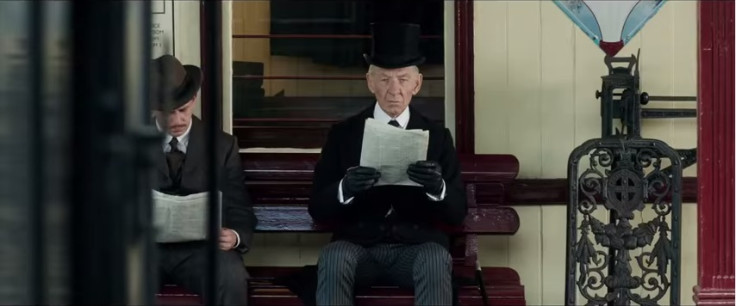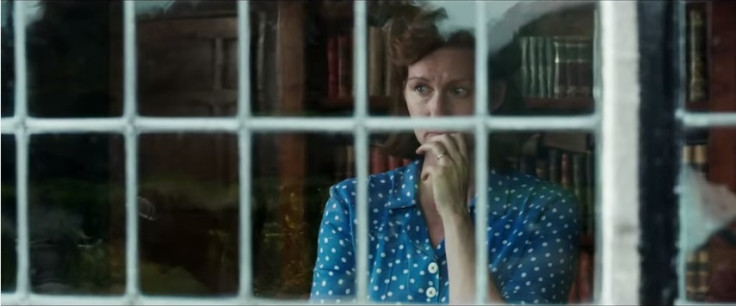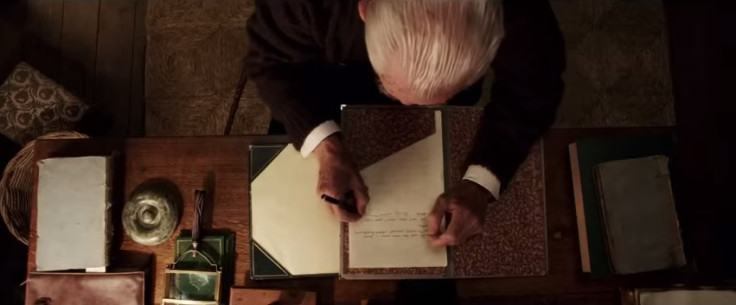Mr Holmes review: Sir Ian McKellen combines whimsy and wisdom in this sorrowful yet sweet tale

It is hard not to have an opinion on Sherlock Holmes. In recent years, we've been subjected to a number of reincarnations of Sir Arthur Conan Doyle's fictional character, with the likes of Jonny Lee Miller, Benedict Cumberbatch and Robert Downey Jr all bringing him to life on variously sized screens.
While the complex character can come off a little ungracious at times, his awkwardness in situations told onscreen, combined with his enviable sheer brilliance has made him popular among film and television fans across the world despite his truthfully less-than-likeable character.
Those dedicated fans who don't believe there is room among the hundreds of depictions gone before it of the fabled detective for yet another retelling, must be made aware that this movie, based upon the novel A Slight Trick Of The Mind by Mitch Cullin portrays a very different kind of Holmes to the one fans are used to. In fact, it almost doesn't feel like a Sherlock Holmes film at all.
Now aged 93 and having retired to the Sussex countryside, Holmes (Sir Ian McKellen) spends his days as a keen beekeeper rather than the darting, dynamic crime solver we've come to know in BBC's Sherlock or CBS's Elementary.
Troubled by the idea that he can't remember his last case, which drove him to give up his profession and led to his seclusion, Holmes takes it upon himself to fight his ailing memory to recollect the events with unexpected help from his housekeeper's son Roger (Milo Parker).

Interestingly enough, a lot of the promotional material surrounding director Bill Condon's particular rendition suggests this movie is "a must-see for Sherlock Holmes fans" – a statement that seems unjustified given what a typical modern day Sherlock fan expects.
Those who have become accustomed to the exciting Holmes we've seen lately and are looking for a mystery caper filled with impressive solves and unexpected twists will be sorely disappointed with this movie as they do not feature throughout the whole piece.
The unsolved case that the film surrounds involving a worried husband, a bereaved wife and a mysterious musical instrument seems somewhat lacklustre when it's twist lies more in an old man simply remembering what happened rather than cracking the clues and saving the day.
More accurately, this is an honest character study that could have quite easily been about any remarkable man or woman who is growing old and subsequently losing a lot of the things that made them who they were before. Be that as it may, it just so happens that in this case, it's about one specific super-sleuth with an arguably more interesting history.
But none of this is detrimental to the film. In fact being so avoidant of those done-to-death Sherlock conventions is something that makes this such a success. Yes, Holmes still possesses those character traits that make him unique and rather abrasive but he also demonstrates qualities we've seen in ourselves and in family members, so in that sense, it's incredibly evocative.
No longer is he a character so extraordinary that viewers cannot relate to him. This depiction is alternatively very real and while movingly saddening, it's also endearing to see the matchless Sherlock struggling with what he once found second nature. In that sense, the film really does deliver on offering up what it promised it would reveal – "the man behind the myth".

Sharing a similar style to 2006's Miss Potter, Mr Holmes has a sense of enchantment and delicateness to it that arguably stems from the idea that both leads are involved with literature throughout the films. As both character's invent, or in this, remember, their stories and pen them down, you embark on that journey with them and through a series of imagined scenarios are taken to those specific paralleled storylines.
Harking back to the time in which Doyle's stories were originally set adds to this sense of elegance so obviously supported by screenwriter Jeffrey Hatcher's experience with aesthetically pleasing pictures including Casanova and The Duchess.
While Love Actually star Laura Linney is perfect as stern-yet-melancholic Mrs Munro in the far-too-little screen time she gets, the standout performance of the film is undoubtedly McKellen who anchors the film from beginning to end. And quite rightly so – the film is called Mr Holmes after all.
As he channels a man 20 years older than himself suffering from impending dementia so effortlessly, it's almost hard to believe he's acting, and the frequent upclose shots highlight the subtle nuances that emphasise this. His ability to mix hammed-up humour when Holmes is in a grumpy and disdainful mood and presenting great pathos in the more serious scenes is seamless and makes for a very believable, three-dimensional character.
Luckily for McKellen, in the past when we've seen a young Holmes acting cantankerously, we've often regarded him as a bit of a rude outcast with poor social skills despite his obvious brilliance. Now, we almost let the grumpiness go because, at the end of the day, the poor man is 93.
The pace is slow but like an old relative you're particularly fond of, you forgive this trait with patience in the knowledge that what will come when you finally arrive at the goal will be carefully considered, beautifully put together and most importantly, truly worth the wait.

© Copyright IBTimes 2025. All rights reserved.






















